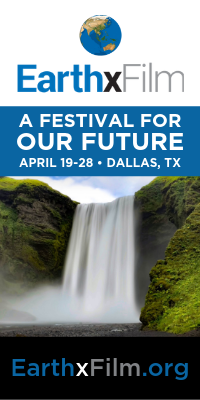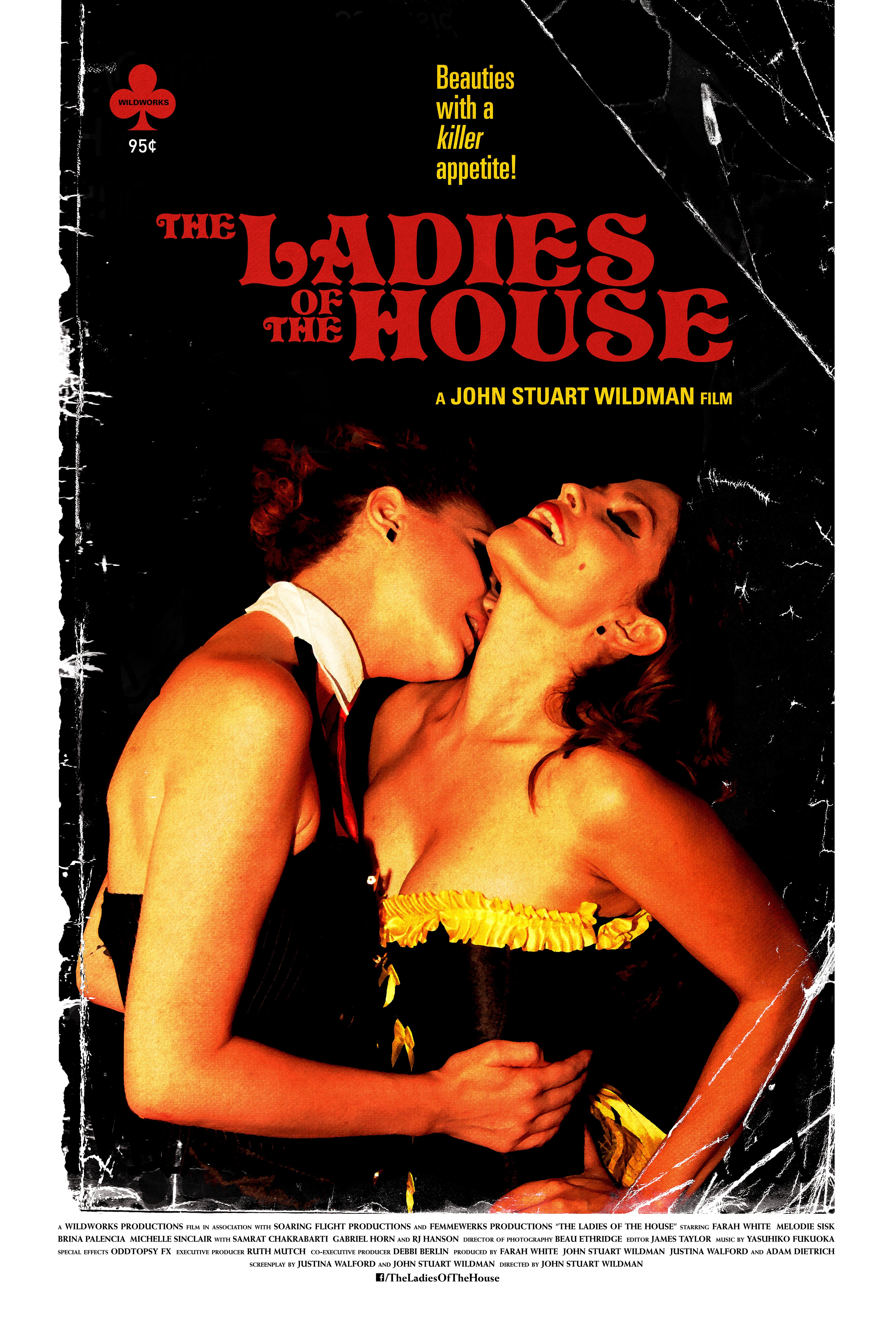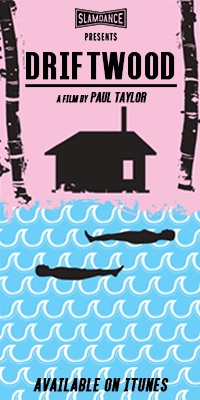In case you missed it, a massive chemical spill happened on January 9th, 2014, in Charleston, West Virginia. Never heard of it? It was the same year that the infamous lead-poisoned water scandal broke in Flint, Michigan. Flint affected 100,000 residents’ drinking water. The Charleston incident befouled 300,000 people’s faucets. All sorts of health problems arose (and continue to arise) from the “accident” – which we include in quotes because it could have totally been avoided, if only clean water regulations would be enforced. The story was tragically underreported in mainstream news outlets. Fortunately, filmmaker Cullen Hoback has made up for much of that deficiency with the release of his passionately and tenaciously pursued feature documentary What Lies Upstream, and audiences would do well to play close attention.

WHAT LIES UPSTREAM
1. You could have picked anything to make a documentary about. What drew you to West Virginia?
When making documentaries, often an idea strikes you, but you’re hamstrung because the grant cycles are slow, or you don’t have enough capital to get the ball rolling. I had the good fortune of having some money in the bank from our previous film, Terms and Conditions May Apply. The investor team was willing to let us spend every dime on a new project. So I was looking for a story we could follow in real-time. When the drinking water crisis in WV hit; there was a lot of unanswered questions that warranted investigation. I also had family from there. I decided to pull the trigger one day into the crisis, called my DP Vincent Sweeney, and we were on a plane to WV the next day. Of course, we didn’t have nearly enough money in the bank for 3 years of shooting—I had originally envisioned a story that might take 2 weeks to a month to film. As is often the case, I tricked myself into starting this film.
2. It’s amazing how you gained the trust of so many people. What was that process like?
In West Virginia, I was primarily concerned with a) figuring out who the major players were and b) making sure we had some level of access. Getting high ranking government officials to go on-camera depended on their views regarding the function and value of the media. I reached out to many other high ranking officials involved in the crisis who didn’t agree to go on-camera. Some of them are still in the film, but we don’t get to hear their perspectives, nor do we get any of the behind the scenes. In general, I think it plays to the advantage of those who provided access.

Villain? Dr. Gupta in WHAT LIES UPSTREAM
3. Dr. Gupta starts out as a sort of hero and then seems to morph into a villain. Do you agree with that observation? Why or why not?
Dr. Gupta has a massive transformation over the course of the film, and we watch him wrestle with his ideals while trying to climb the political ladder. I certainly don’t see him as a villain. Rather, Gupta’s evolution into a hamstrung health official is a damning indictment of the entire system.
4. Are you still involved with the greater Charleston community and this issue? If so, where are things at?
We conducted a screening of What Lies Upstream in the Capitol Theater in downtown Charleston back in early November. To my relief, the film was met with a standing ovation. I’m optimistic that working with local NGOs and eventually releasing the film on PBS will help fuel a broader campaign for change in the state. That said, as the film shows, the problems in West Virginia aren’t state specific—regulatory capture is happening everywhere. Environmental policemen aren’t doing their jobs. No one has safe water.
5. It’s pretty crazy how candid you got a lot of people to be about their mistakes and possible misdeeds. How do you evoke such honesty from your subjects?
I mostly listen until I feel like I understand a situation fully enough to act. That’s why you see very little onscreen confrontation in the first 50 minutes.

Getting the trust of another public official..?
(WHAT LIES UPSTREAM)
6. Watching the film can almost be seen as a template for activism. Do you accept that assessment? If so, how do you think it could be used to inspire future activism?
If presenting facts and making carefully constructed arguments is activism, then sure, it could be considered a template. The film really tries to get at the heart of what’s broken with the system meant to protect drinking water; it’s an investigation. I’m not a water activist any more than I was a privacy activist on my last film. I‘m interested in how the technology and science can be applied to limit civil liberties—usually through misuse of the law. And yeah, I think clean water is a basic human right and that environmental policemen should do their jobs. Bottom line: Documentarians won’t be short on subject matter until one major thing happens: campaign finance reform.
7. It’s hard to watch victims of the spill vocalize anti-regulation sentiments. Do you see a way to win some of those folks over to the progressive policies which would actually help them?
A fantastic water protective regulation did pass in West Virginia. The people wanted it. Politicians who caved to special interests subverted the will of the vast majority of the people. The reality is, most people who were served contaminated drinking water don’t know the truth about how their government backstabbed them. So I made a film to show them. Hopefully they’ll see it.
8. Your film shows Joe Manchin giving a lot of lip service to the spill, but also reveals how deep he is in the coal business. Do you have any hope of him actually helping the victims?
Manchin I believe did care about the victims. Unfortunately, his reckless anti-regulatory mindset created the environment that caused the crisis. It’s like shooting someone with a gun, blaming the manufacturer of the weapon, then sending the victim flowers. There’s also the culpability of the “victims,” many of whom supported anti-regulation until their water became dangerous to drink.
Still, Joe Manchin is far from the worst of the politicians in West Virginia. The current governor, Jim Justice, is the richest man in West Virginia from exploiting every imaginable resource. Meanwhile, he owes millions in back taxes to impoverished counties around the state; places he’s pillaged for personal gain. It’s really a race to the bottom—kind of like what’s happening on the national stage.
9. You’ve uncovered the great scandal of lax enforcement of environmental laws. Have you discovered any sort of mechanism to overcome this tragedy?
1) Increased accountability for scientific agencies.
Right now, regulators are not incentivized to find bad things, so they don’t enforce the regulations that already exist. By adding independent 3rd party audits, we can improve the quality of enforcement and the safety of public health.
2) An End to Political Appointments of Scientific Agencies
As it stands, heads of scientific agencies are currently beholden to the politicians that appoint them–typically the governor. As shown in the film, these politicians are bound by their ties to special interests who undermine science for profit. I think we should let scientists decide how their agencies are run instead of special interests.
3) Guaranteed Financial Support
When a crisis happens, regulatory agencies are often threatened with funding cuts. The result is that agencies are afraid of revealing problems, upholding transparency, and communicating with the public. By securing scientific agency funding, we separate their responsibility to find bad things from the unpredictability of public perception.

Drink the water. Cullen Hoback in WHAT LIES UPSTREAM
10. You can see the coal miners’ reluctance to bite the hand that feeds them even while they have been poisoned for profit. Do you see a way to help these people get beyond their dependency on the very industry which has done them so much harm?
All you can do is try to give people access to information—they have to want to change on their own.
WHAT LIES UPSTREAM can be found on iTunes at: https://itunes.apple.com/us/movie/what-lies-upstream/id1315283487








READER COMMENTS